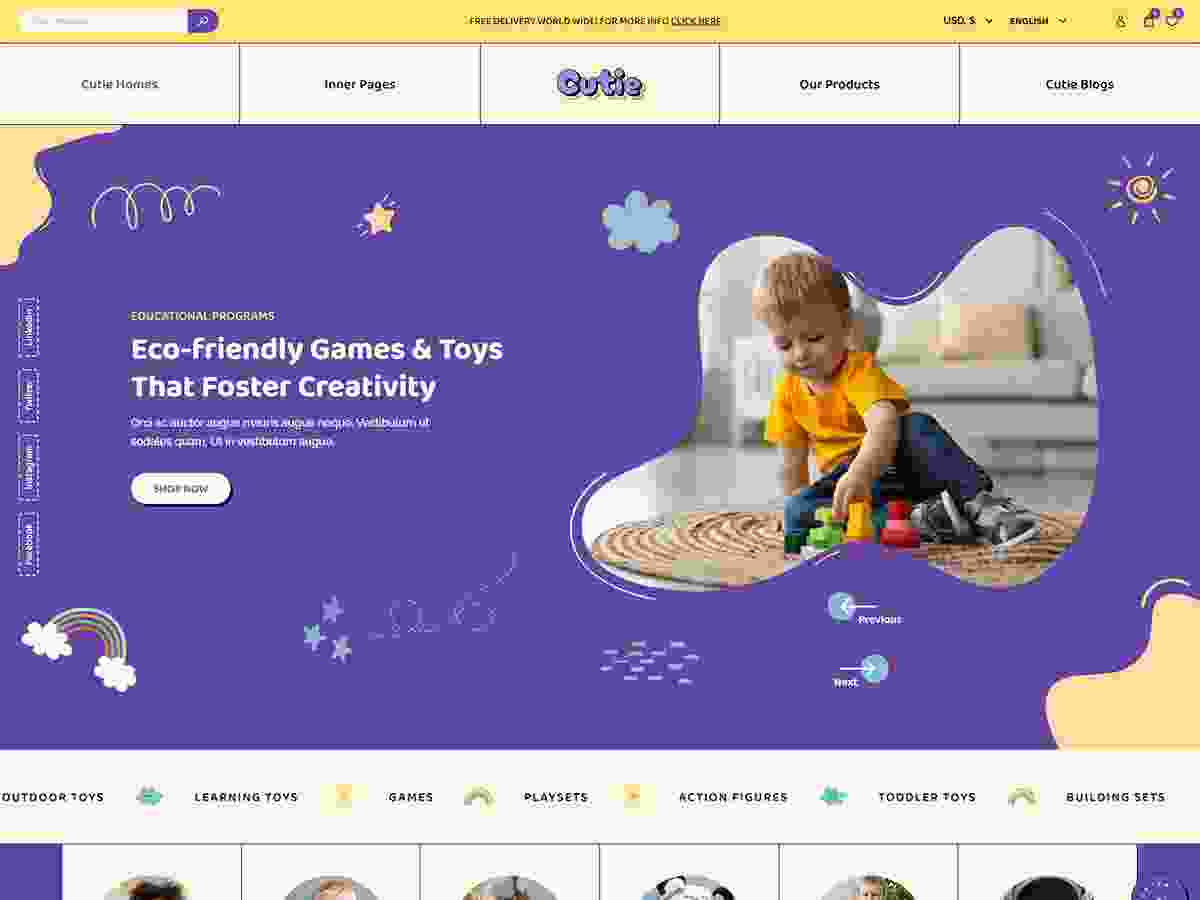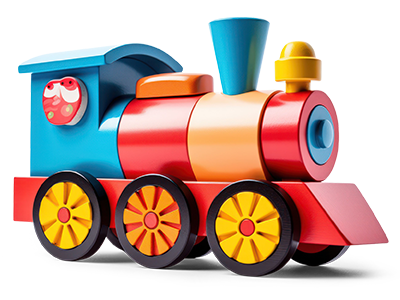Spa Jobs offer fulfilling careers centered around wellness, relaxation, and helping others feel their best. Spa-wear.com can provide you with the perfect attire to start your dream career in the spa industry, where tranquility meets professionalism. Discover the diverse roles, required skills, and how to land your ideal spa position, ensuring you’re well-prepared to embrace this rejuvenating career path.
1. What Types of Spa Jobs Are Commonly Available?
Spa jobs encompass a variety of roles, each contributing to a client’s relaxation and well-being. These roles range from hands-on therapists to customer service and management positions.
- Massage Therapist: Provides therapeutic massage to relieve pain, reduce stress, and promote relaxation.
- Esthetician: Performs skincare treatments such as facials, peels, and waxing.
- Nail Technician: Specializes in manicures, pedicures, and nail enhancements.
- Spa Receptionist: Manages appointments, greets clients, and handles administrative tasks.
- Spa Manager: Oversees spa operations, manages staff, and ensures customer satisfaction.
- Cosmetologist: Offers a range of beauty services, including hair styling, makeup application, and skincare.
- Body Treatment Therapist: Administers body wraps, scrubs, and other specialized treatments.
- Acupuncturist: Provides acupuncture treatments to alleviate pain and promote overall health.
- Reflexologist: Applies pressure to specific points on the feet, hands, or ears to promote relaxation and healing.
- Waxing Specialist: Performs hair removal services using various waxing techniques.
Each of these positions plays a crucial role in delivering a comprehensive and rejuvenating spa experience. According to the International Spa Association (ISPA), the spa industry offers diverse career paths with opportunities for growth and specialization. Spa-wear.com supports these professionals by providing high-quality, comfortable attire suitable for various spa environments.
2. What Skills and Qualifications Are Required for Spa Jobs?
To excel in spa jobs, specific skills and qualifications are essential. These requirements ensure that spa professionals can deliver high-quality services and maintain a safe and relaxing environment.
- Certification and Licensing: Many spa positions, such as massage therapists and estheticians, require state-approved certification or licensure.
- Technical Skills: Proficiency in performing specific treatments, such as massage techniques, skincare procedures, and nail services, is crucial.
- Customer Service Skills: Excellent communication, empathy, and interpersonal skills are necessary to provide exceptional customer experiences.
- Product Knowledge: A thorough understanding of spa products, ingredients, and their benefits is important for recommending and selling products to clients.
- Hygiene and Sanitation: Strict adherence to hygiene and sanitation standards is essential to maintain a clean and safe spa environment.
- Time Management: The ability to manage time effectively and handle multiple clients is important for maximizing productivity.
- Problem-Solving: Quick thinking and problem-solving skills are needed to address client concerns and unexpected issues.
- Physical Stamina: Some spa jobs, such as massage therapy, require physical stamina and the ability to stand for extended periods.
- Sales Skills: The ability to promote and sell spa services and products can increase revenue and customer loyalty.
- Continuing Education: Staying updated with the latest industry trends, techniques, and technologies is essential for professional growth.
For example, a massage therapist needs a deep understanding of anatomy and physiology, along with hands-on training in various massage modalities. Estheticians should be knowledgeable about different skin types and conditions, as well as the appropriate treatments and products. Spa-wear.com supports professionals by providing attire that meets hygiene standards and allows for comfortable, unrestricted movement.
3. How Can I Find Available Spa Jobs Near Me?
Finding spa jobs near you involves utilizing various online resources and networking strategies. Here’s how you can effectively search for and locate available positions:
- Online Job Boards: Use popular job search websites such as Indeed, LinkedIn, Glassdoor, and CareerBuilder to search for spa jobs in your area.
- Spa Websites: Visit the websites of local spas, resorts, and wellness centers to check their careers pages for job openings.
- Professional Associations: Join professional associations like the International Spa Association (ISPA) to access job postings and networking opportunities.
- Networking: Attend industry events, conferences, and workshops to meet spa professionals and learn about potential job openings.
- Social Media: Follow spas and wellness centers on social media platforms like Facebook, Instagram, and Twitter to stay informed about job postings.
- Recruiting Agencies: Contact staffing agencies that specialize in the hospitality and wellness industries to find job opportunities.
- Classified Ads: Check local newspapers and online classified ads for spa job listings.
- Informational Interviews: Reach out to spa professionals for informational interviews to learn about their experiences and potential job leads.
- Spa Directories: Utilize spa directories to identify spas in your area and then check their websites for job openings.
- Direct Application: Visit local spas in person to inquire about job opportunities and submit your resume.
By using a combination of these methods, you can increase your chances of finding the perfect spa job near you. Spa-wear.com can help you make a great first impression with professional and comfortable spa attire, ensuring you look and feel confident during your job search.
4. What Are the Typical Responsibilities of a Spa Receptionist?
A spa receptionist is the first point of contact for clients, playing a crucial role in creating a positive and welcoming atmosphere. Their responsibilities typically include:
- Greeting Clients: Warmly welcoming clients upon arrival and ensuring they feel comfortable.
- Managing Appointments: Scheduling, confirming, and rescheduling appointments using spa management software.
- Answering Phones: Answering phone calls, providing information about services, and booking appointments.
- Handling Payments: Processing payments, issuing receipts, and managing the cash register.
- Addressing Inquiries: Responding to client inquiries via phone, email, and in person, providing accurate and helpful information.
- Maintaining Records: Updating client records, treatment notes, and other relevant information.
- Managing Inventory: Monitoring and ordering spa supplies, ensuring adequate stock levels.
- Keeping the Reception Area Tidy: Maintaining a clean and organized reception area.
- Promoting Services: Informing clients about special promotions, new services, and spa products.
- Handling Complaints: Addressing and resolving client complaints in a professional and timely manner.
- Assisting Staff: Providing administrative support to spa therapists and other staff members.
- Opening and Closing Duties: Performing opening and closing tasks, such as setting up the reception area and securing the spa.
The spa receptionist sets the tone for the entire spa experience. Their professionalism and efficiency ensure smooth operations and client satisfaction. Spa-wear.com offers stylish and comfortable attire for receptionists, helping them look and feel their best while performing their duties.
5. How Can I Write a Compelling Resume for Spa Job Applications?
Creating a compelling resume is crucial for landing your desired spa job. Here’s how to write a resume that highlights your skills, experience, and qualifications effectively:
- Start with a Strong Summary: Begin with a brief summary that highlights your key skills, experience, and career goals. Tailor this summary to the specific spa job you’re applying for.
- Highlight Relevant Skills: Include a section dedicated to your skills, listing both technical skills (e.g., massage techniques, skincare procedures) and soft skills (e.g., customer service, communication).
- Showcase Your Experience: Detail your work experience in reverse chronological order, emphasizing your accomplishments and responsibilities. Use action verbs to describe your tasks and quantify your achievements whenever possible.
- Include Certifications and Licenses: List any relevant certifications and licenses, such as massage therapy licenses, esthetician certifications, or nail technician licenses.
- Emphasize Customer Service: Highlight your customer service skills and experiences, demonstrating your ability to provide exceptional service and build client relationships.
- Tailor Your Resume: Customize your resume for each job application, emphasizing the skills and experiences that are most relevant to the specific position.
- Use Keywords: Incorporate keywords from the job description into your resume to help it pass through applicant tracking systems (ATS).
- Proofread Carefully: Review your resume for errors in grammar, spelling, and punctuation. A polished and error-free resume demonstrates attention to detail.
- Use a Professional Format: Choose a clean and professional resume format that is easy to read. Use clear headings, bullet points, and concise language.
- Include References: Provide a list of professional references who can vouch for your skills and experience.
By following these tips, you can create a resume that stands out and showcases your qualifications for spa jobs. Don’t forget to present yourself professionally by wearing appropriate attire from spa-wear.com to interviews.
6. What Are Some Common Interview Questions for Spa Positions?
Preparing for common interview questions can significantly increase your chances of landing a spa job. Here are some typical questions you might encounter:
- “Why are you interested in working in the spa industry?”
- This question allows you to express your passion for wellness, relaxation, and helping others. Share your personal connection to the industry and what motivates you.
- “What experience do you have that makes you a good fit for this position?”
- Highlight your relevant skills, certifications, and experiences. Provide specific examples of how you have succeeded in similar roles.
- “How do you handle difficult or demanding clients?”
- Describe your approach to resolving conflicts and providing exceptional customer service. Emphasize your patience, empathy, and problem-solving skills.
- “What are your strengths and weaknesses?”
- Choose strengths that are relevant to the job and provide examples of how you have used them to succeed. Be honest about your weaknesses and explain how you are working to improve them.
- “How do you stay updated with the latest trends and techniques in the spa industry?”
- Discuss your commitment to continuing education, professional development, and staying informed about new treatments and products.
- “What do you know about our spa, and why do you want to work here?”
- Research the spa’s mission, values, and services. Explain what attracts you to the spa and how you can contribute to its success.
- “How do you handle stress in a fast-paced environment?”
- Describe your strategies for managing stress, such as time management, prioritization, and self-care practices.
- “Can you describe a time when you went above and beyond for a client?”
- Share a specific example of how you exceeded a client’s expectations and created a memorable experience.
- “What are your salary expectations?”
- Research the average salary for similar positions in your area and provide a range that reflects your experience and qualifications.
- “Do you have any questions for us?”
- Prepare thoughtful questions to ask the interviewer, demonstrating your interest and engagement.
By preparing answers to these common interview questions, you can confidently showcase your skills and qualifications. Remember to dress professionally in attire from spa-wear.com to make a positive impression.
7. How Important Is Continuing Education in the Spa Industry?
Continuing education is vital in the spa industry, ensuring that professionals stay updated with the latest trends, techniques, and technologies. The spa industry is constantly evolving, with new treatments, products, and practices emerging regularly.
- Staying Updated: Continuing education helps spa professionals stay informed about the latest advancements in skincare, massage therapy, nail care, and other spa services.
- Improving Skills: Advanced training and workshops can enhance technical skills, allowing professionals to provide higher-quality services and achieve better results.
- Expanding Service Offerings: Learning new treatments and techniques can expand a spa’s service menu, attracting new clients and increasing revenue.
- Meeting Licensing Requirements: Many states require spa professionals to complete continuing education hours to maintain their licenses and certifications.
- Enhancing Credibility: Demonstrating a commitment to continuing education can enhance a professional’s credibility and reputation in the industry.
- Boosting Confidence: Acquiring new knowledge and skills can boost confidence, allowing professionals to provide services with greater assurance and expertise.
- Adapting to Trends: Continuing education helps professionals adapt to changing trends and client preferences, ensuring they remain competitive in the market.
- Improving Client Satisfaction: By staying updated and improving their skills, spa professionals can provide more effective and satisfying treatments, leading to higher client satisfaction.
- Increasing Earning Potential: Professionals with advanced training and specialized skills may command higher salaries and attract more clients.
- Networking Opportunities: Continuing education courses and workshops provide valuable networking opportunities, allowing professionals to connect with peers and industry experts.
The International Spa Association (ISPA) emphasizes the importance of ongoing education for spa professionals. Spa-wear.com supports lifelong learning by providing attire that allows for comfort and flexibility during training sessions and workshops.
8. What Are Some Essential Qualities of a Successful Massage Therapist?
A successful massage therapist possesses a combination of technical skills, interpersonal abilities, and personal attributes. These qualities enable them to provide exceptional service and build lasting client relationships.
- Technical Proficiency: A deep understanding of anatomy, physiology, and massage techniques is essential for providing effective and safe treatments.
- Empathy and Compassion: The ability to understand and respond to clients’ needs and concerns with empathy and compassion is crucial for building trust.
- Communication Skills: Clear and effective communication skills are necessary for explaining treatments, providing instructions, and addressing client questions.
- Listening Skills: Active listening is important for understanding clients’ concerns, preferences, and expectations.
- Professionalism: Maintaining a professional demeanor, adhering to ethical standards, and respecting client confidentiality are essential.
- Physical Stamina: Massage therapy can be physically demanding, requiring stamina, strength, and proper body mechanics to avoid injury.
- Time Management: The ability to manage time effectively, stay on schedule, and handle multiple clients is important for maximizing productivity.
- Problem-Solving Skills: Quick thinking and problem-solving skills are needed to address unexpected issues and adapt treatments to individual client needs.
- Sales Skills: The ability to promote and sell massage services and products can increase revenue and client loyalty.
- Continuing Education: A commitment to ongoing learning and professional development is essential for staying updated with the latest techniques and trends.
- Hygiene and Sanitation: Strict adherence to hygiene and sanitation standards is crucial for maintaining a clean and safe treatment environment.
- Adaptability: The ability to adapt massage techniques and treatment plans to meet the unique needs of each client.
Spa-wear.com supports massage therapists by offering comfortable, professional attire that allows for unrestricted movement and helps maintain a hygienic environment.
9. How Can I Stand Out in a Spa Job Interview?
Standing out in a spa job interview requires preparation, confidence, and a genuine passion for the industry. Here are some strategies to help you make a lasting impression:
- Research the Spa: Thoroughly research the spa’s mission, values, services, and culture. Demonstrate your knowledge and enthusiasm during the interview.
- Dress Professionally: Choose professional and appropriate attire that reflects the spa’s brand. Spa-wear.com offers a range of stylish and comfortable options.
- Highlight Relevant Skills: Emphasize your skills and experiences that align with the job requirements. Provide specific examples of your accomplishments and contributions.
- Showcase Your Personality: Let your personality shine through. Be friendly, engaging, and authentic.
- Demonstrate Customer Service Skills: Highlight your ability to provide exceptional customer service and build client relationships. Share stories of how you have exceeded client expectations.
- Ask Thoughtful Questions: Prepare thoughtful questions to ask the interviewer, demonstrating your interest and engagement.
- Express Your Passion: Clearly express your passion for the spa industry and your desire to contribute to the spa’s success.
- Provide a Portfolio: If applicable, bring a portfolio showcasing your work, such as before-and-after photos of skincare treatments or examples of nail art.
- Follow Up: Send a thank-you note or email after the interview, reiterating your interest and expressing your appreciation for the opportunity.
- Be Confident: Project confidence in your abilities and qualifications. Believe in yourself and your potential to succeed.
By following these tips, you can stand out in a spa job interview and increase your chances of landing your dream job.
10. What Are the Career Advancement Opportunities in the Spa Industry?
The spa industry offers numerous career advancement opportunities for motivated and skilled professionals. Starting in an entry-level position can lead to various advanced roles and specializations.
- Lead Therapist: Experienced therapists can advance to lead therapist positions, overseeing other therapists and ensuring quality service.
- Spa Manager: Spa managers oversee spa operations, manage staff, and ensure customer satisfaction. This role requires strong leadership, organizational, and customer service skills.
- Assistant Spa Director: Assistant spa directors support spa directors in managing spa operations and implementing strategic initiatives.
- Spa Director: Spa directors are responsible for the overall management and success of the spa, including financial performance, marketing, and staff development.
- Regional Manager: Regional managers oversee multiple spa locations, ensuring consistency in service quality and operational efficiency.
- Corporate Trainer: Corporate trainers develop and deliver training programs for spa staff, ensuring they have the skills and knowledge to provide exceptional service.
- Product Development: Professionals with expertise in skincare, cosmetics, or wellness can pursue careers in product development, creating new and innovative spa products.
- Spa Consultant: Spa consultants provide expert advice to spas on various aspects of their business, including menu development, marketing, and operational efficiency.
- Spa Owner: Ambitious professionals can pursue their dream of owning and operating their own spa, creating a unique and personalized wellness experience.
- Specialization: Therapists can specialize in specific treatments, such as medical massage, sports massage, or advanced skincare techniques, becoming experts in their field.
According to the International Spa Association (ISPA), the spa industry is projected to continue growing, offering even more career advancement opportunities in the future. Spa-wear.com supports professionals throughout their career journey by providing high-quality, comfortable attire that meets the demands of various spa roles.
Eager to begin your spa journey? Visit spa-wear.com today to explore our professional attire and find resources for a successful career! For inquiries, reach us at 7014 E Camelback Rd, Scottsdale, AZ 85251, United States, or call +1 (480) 947-5400. Your path to a fulfilling spa career starts here.
FAQ: Your Questions About Spa Jobs Answered
1. What is the most common entry-level spa job?
The most common entry-level spa job is typically a spa receptionist or spa attendant position, as these roles often require less experience and training compared to therapist positions.
2. Do spa jobs offer good benefits?
Yes, many spa jobs offer competitive benefits packages, including health insurance, paid time off, discounts on spa services and products, and opportunities for professional development. Hershey Entertainment & Resorts, for example, offers free admission to Hersheypark, discounts on retail, dining, and hotel stays, and comprehensive health benefits for full-time employees.
3. What are the physical requirements for some spa jobs?
Physical requirements for spa jobs can include the ability to stand for extended periods, lift and carry moderate weights (such as massage tables or product supplies), and perform repetitive movements with hands and arms.
4. How can I improve my chances of getting hired at a spa?
To improve your chances of getting hired at a spa, focus on gaining relevant skills and certifications, building a strong resume, practicing your interview skills, and networking with spa professionals.
5. What is the best way to dress for a spa job interview?
The best way to dress for a spa job interview is to wear professional and comfortable attire that reflects the spa’s brand. Business casual attire is generally appropriate, such as a blouse and slacks or a skirt and blazer. spa-wear.com offers stylish options that are perfect for interviews.
6. Is prior experience always necessary to get a spa job?
While prior experience is beneficial, it is not always necessary for entry-level positions. Many spas are willing to train motivated individuals who demonstrate a passion for the industry and a willingness to learn.
7. What are the working hours like in spa jobs?
Working hours in spa jobs can vary depending on the spa’s operating hours and the specific position. Some spa jobs may require evening, weekend, or holiday hours to accommodate client demand.
8. What is the difference between a massage therapist and a massage technician?
A massage therapist typically has more extensive training and certification compared to a massage technician. Massage therapists may also have a broader scope of practice and be able to perform more advanced massage techniques.
9. What are some popular massage therapy techniques used in spas?
Some popular massage therapy techniques used in spas include Swedish massage, deep tissue massage, hot stone massage, aromatherapy massage, and sports massage.
10. How can I advance my career as a spa professional?
To advance your career as a spa professional, focus on continuous learning, specializing in specific treatments, developing leadership skills, and networking with industry professionals. Consider pursuing advanced certifications or degrees to enhance your knowledge and expertise.






